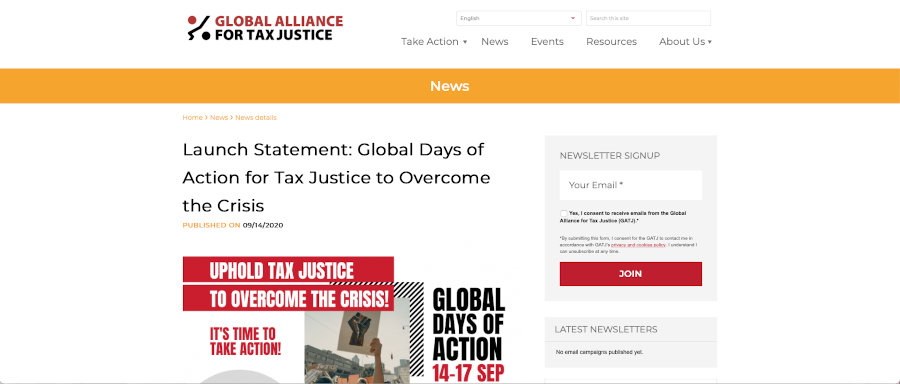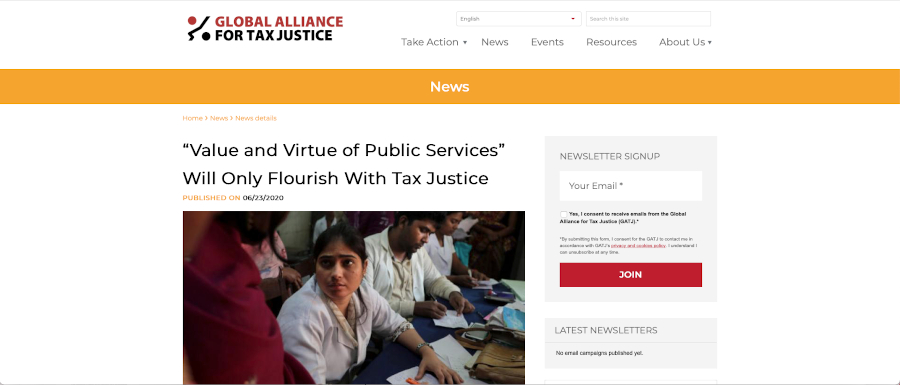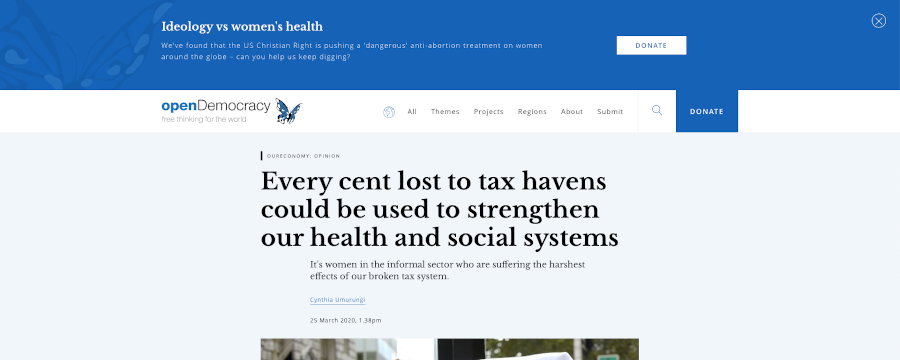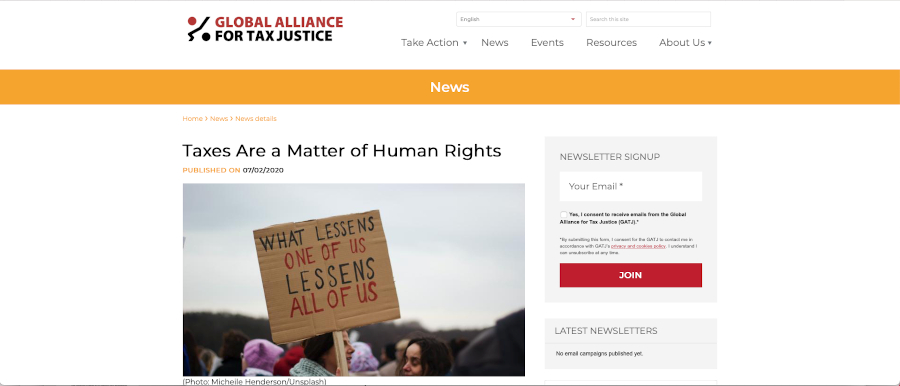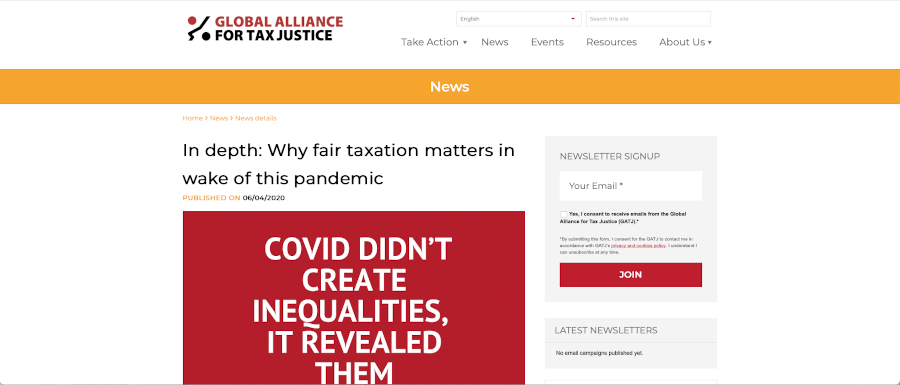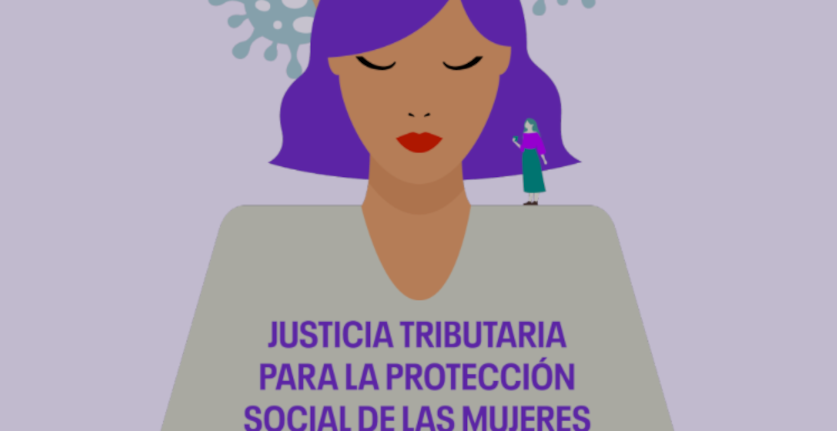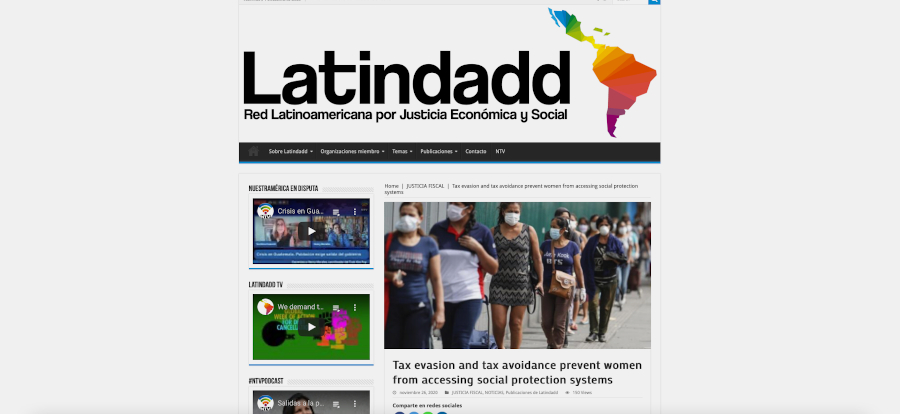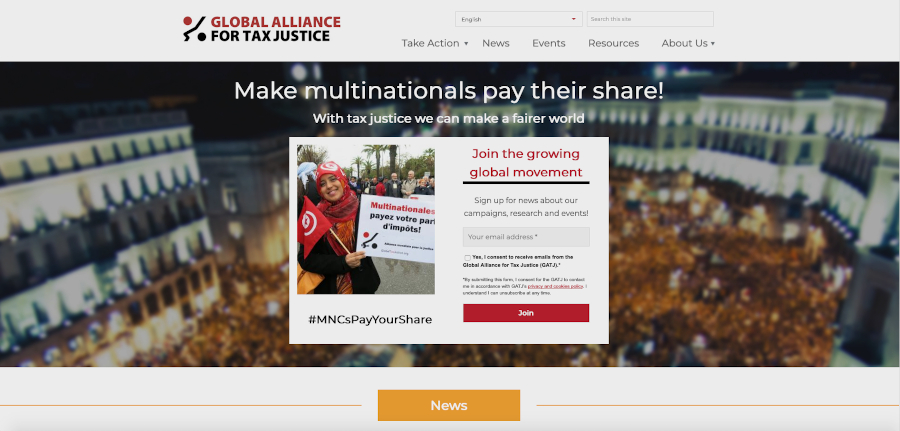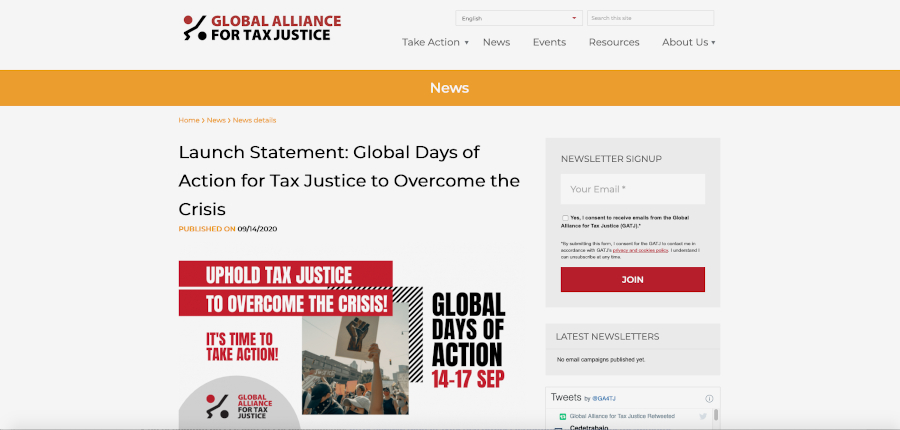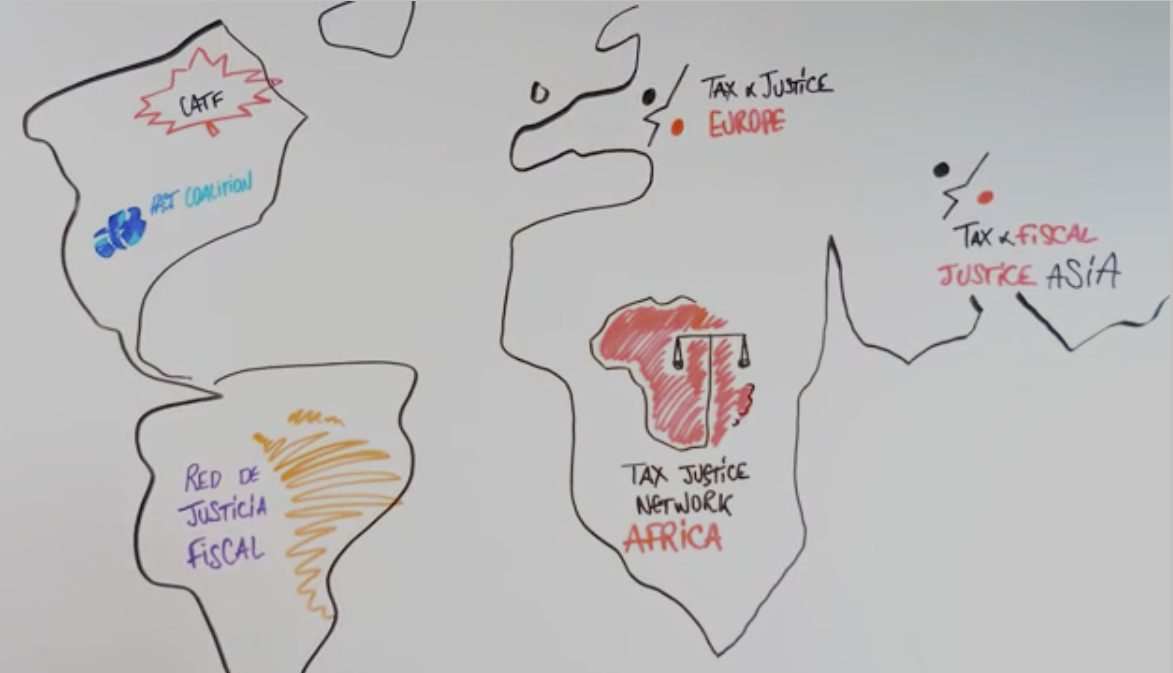GATJ's statement for our global campaign for Tax Justice to Overcome the Crisis
“Several months after the global outbreak of the COVID-19 pandemic,...
UN Tax Convention
Our demands
- A truly universal, intergovernmental process at the UN to comprehensively address tax havens, tax abuse by multinational corporations and other illicit financial flows that obstruct redistribution and drain resources crucial to challenging gender inequality.
- Taxing income, wealth and trade should support the internationally agreed human rights frameworks (to mobilize the maximum available revenues). Tax abuse and tax avoidance should be considered under the extraterritorial obligations of states towards other states. Abusive tax laws and rules hamper the enjoyment of human rights via blocking financing.
- International tax rules exacerbate inequalities within and between countries. Therefore, taxing rights must be determined by countries.
- Regulate and control monopolization of sectors. e.g. care, in digital services and infrastructure.
- Curb ‘tax wars’ – tax competition (eliminate tax incentives, set a progressive model for progressive tax treaties, consider minimum corporate tax rates, ensure equity and control over withholding taxes).
- Establish an extension of a universal and multilateral tax transparency policy platform (ABC policy trio adopted by tax justice movement), which can curb ‘offshoring’ of wealth and the shifting of profits including the regulation of trusts and foundations, and enable governments to maximize available resources and redistribute them in support of realization of women’s rights.
- Monitor and evaluate impact of IFFs (channels of flow and scale) – the vulnerability of countries and the impact of the rights of women nationally and as a spillover impact.
The dimension of Gender Equality
The absence of redistributive justice redirects negative impacts on the shoulders of women. Regressive taxation measures and illicit financial flows (especially corporate tax abuse and tax havens, as stated by the CEDAW Committee) reduce the fiscal space for governments, who then are not able to spend the maximum amount of resources to ensure gender equality and women’s human rights. This increases the burden of unpaid domestic and care work.
Statement by Dereje and other regional networks' members for the International Public Service Day
“The ‘value and virtue’ of public services have...
By Cynthia Umurungi (TJNA), as a contribution to our global campaign Make Taxes Work for Women.
“The current broken international tax systems allow...
About the webinar our TGWG organised with WWG on FfD
“As we all struggle to sort out this socioeconomic crisis, leaders in feminist economics warn:...
By Caroline and Roosje, co-coordinators of our Tax & Gender Working Group
People in all countries at all levels of development are affected but...
“The tax system has a high share of indirect taxes, offers innumerable privileges to the private sector and higher income sectors, and loses...
New report “Tax Justice for the social protection of women” addresses gender gaps and inequalities in the coverage of these systems in Latin...
Visit the site of the Global Alliance for Tax Justice (GATJ) to hear more about the activities of the Tax Justice movement.
September 2020 was the time for the Global Days of Action for Tax Justice to Overcome the Crisis. See the statement here!
Watch the video Make Taxes Work for Women.
Support the demands of Tax Justice in the extractive industry!


